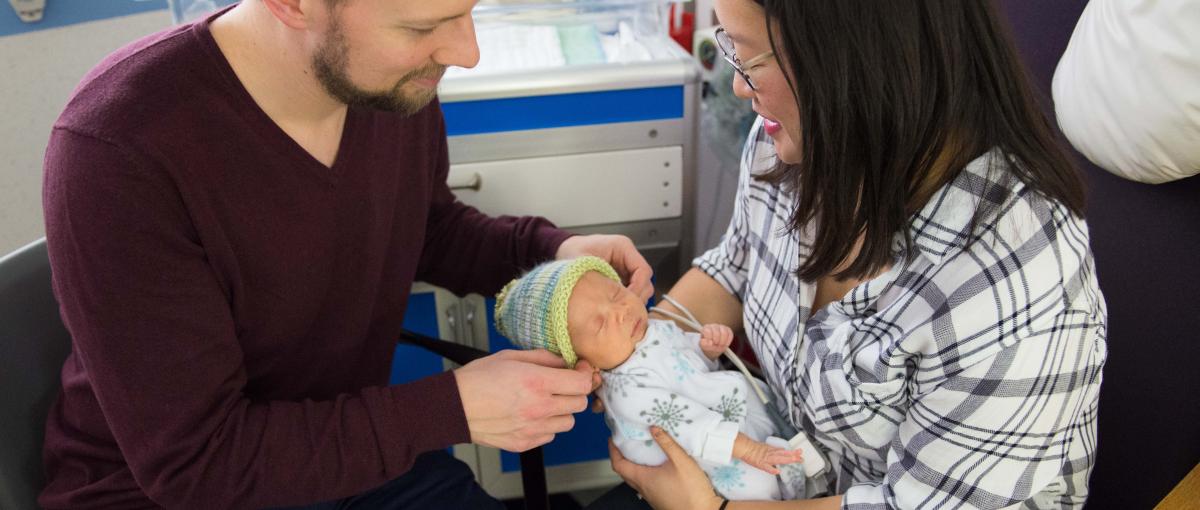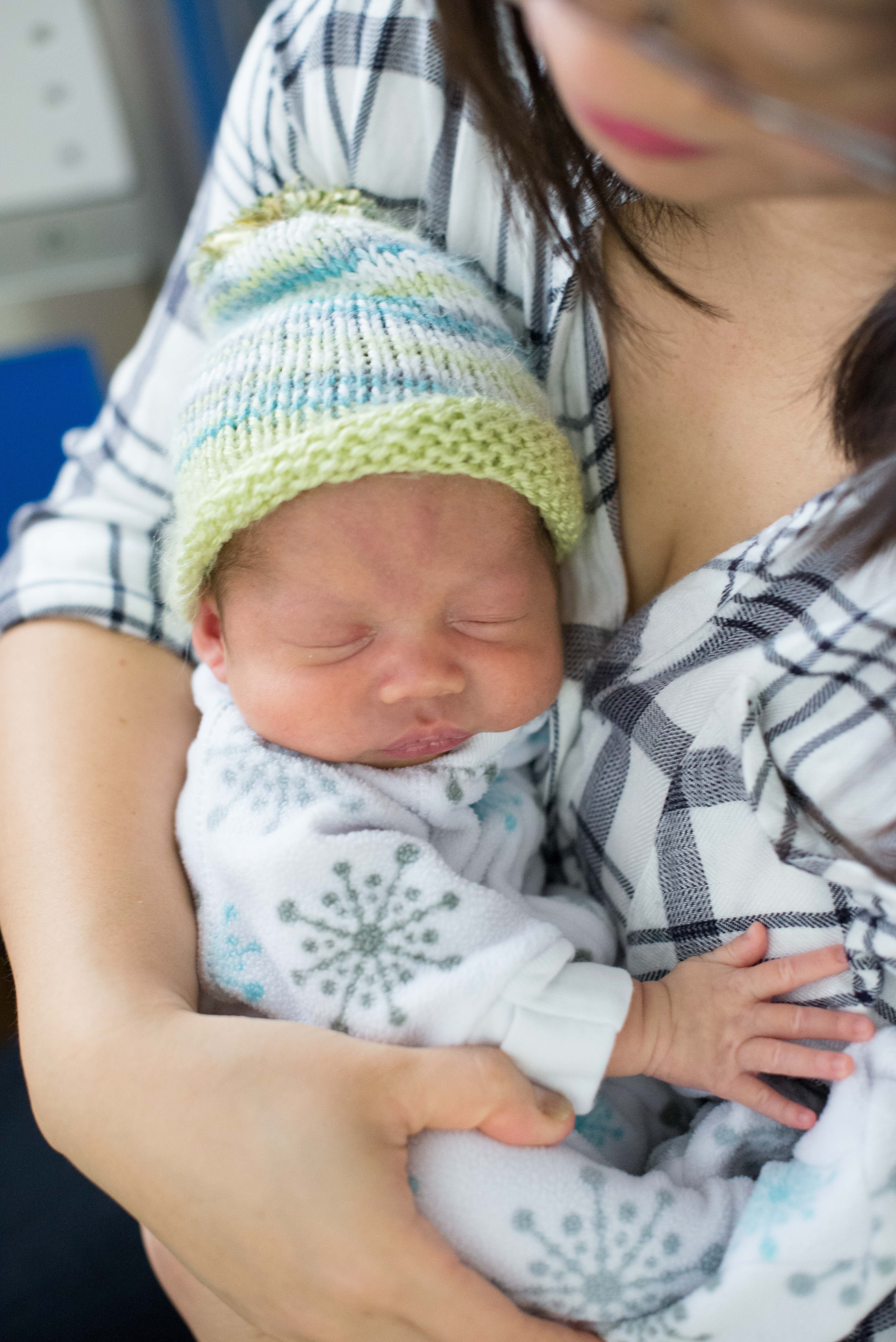New space, same care for preterm babies
Families are the focus to help babies get home sooner

November 21, 2016
By Tessia Verbeek, Senior Advisor, Communications, Covenant Health
“It’s never part of a parent’s birth plan to end up in the neonatal intensive care unit (NICU),” says Robyn Halbert, a Clinical Nurse Educator in Child Health at the Misericordia Community Hospital. “But when they do, we make it the best experience we can for them.”
It’s the second child and second visit to the Misericordia NICU for parents Winnie and Ryan Cook, but despite the familiarity, “it’s still overwhelming,” admits Ryan.
For Winnie, a complicated first pregnancy gave her an idea of how her second would go. She was monitored for gestational diabetes and admitted to the hospital with pre-eclampsia.
Although Elliott was born five weeks premature due to mom's pre-eclampsia, delivery went well and Winnie was thrilled to be discharged shortly afterward with their new baby in tow.
“We had instructions to monitor Elliott’s temperature and weight,” says Winnie. “But his temperature remained quite low and during a home visit, a public health nurse recommended we bring Elliott into NICU.”
“The health professionals thought it might be an infection, although he was a little jaundiced as well,” says Ryan.
“Despite knowing something was wrong, we knew Elliott was in the right hands.”
Those hands don’t just belong to the NICU care team—they also belong to Winnie and Ryan. It’s part of family-integrated practice, in which staff and physicians include parents in all points of care.
“I came in every morning and participated in rounds,” says Winnie. “We discussed Elliott’s vitals, what targets we were trying to hit, and they answered any questions I had.”
It wasn’t always this way. Rhea Shank, Unit Manager, says, “Parents often had restricted access and had to gown up before getting 15 to 30 minutes with their baby. Now, the family is actively involved the entire time. We bring our expertise—but we have the parents tell us about their baby.”
“Parents are the best historians,” adds Robyn. “Babies talk with their eyes, faces and hands—and their parents, sitting and staring at their newborn, are the ones learning that language.”
While family-integrated care is already happening, patient outcomes will be enhanced even further as the unit moves to a renovated space. When it opens Nov. 29, it will be the most technologically advanced NICU in the Edmonton zone.
The renovated space has 23 single patient rooms, with two being twin rooms, where parents can choose to stay with their infants 24/7. Each room has enhanced sound protection as well as individual lighting and temperature controls to address the specific needs of the infant and their family.

“Families will love it,” says Rhea. “They have their own space they can move into and personalize. The privacy makes it easier to spend time with their infants and do skin to skin, which speeds healing and growth for both moms and babies.”
NICU staff see the positive impact of family interaction on their babies first-hand.
"When a parent talks to their newborn, we can visibly see a baby’s breath and heart rate slow down,” says Robyn. “We know how important parents are in healing. They give us the privilege to assist.”
Ryan agrees. “It never felt like it was them taking care of the baby—it was all of us.”
He pauses to help Winnie pull a fuzzy tuque over Elliott’s head. After five days in NICU, Elliott has better colour and his temperature is back to normal. He’s ready to go home with his parents.